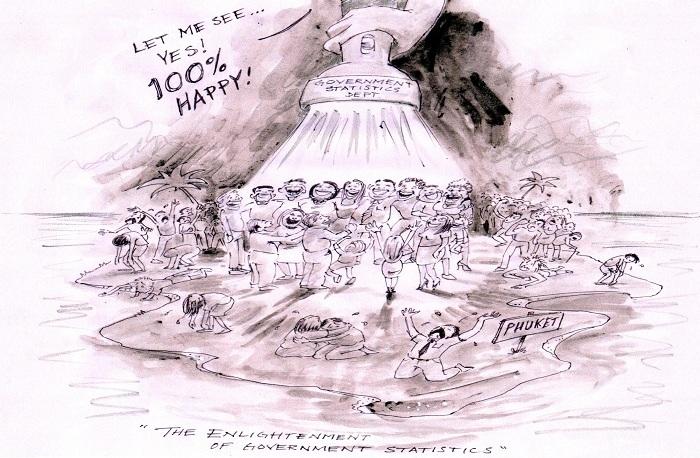Opinion: Skewing statistics – the positive and negative

PHUKET: The recent revelation that Phuket has the highest reported incidence of human immunodeficiency virus infection and acquired immunodeficiency syndrome (HIV/Aids) cases in Thailand should be a cause for concern and increased personal awareness, but not panic.
As pointed out by the local Provincial Health Office, Thailand’s province-based statistical reporting of national trends in the global HIV/Aids pandemic has been consistently skewed over the years by Phuket’s enormous tourism industry – especially the huge population of workers, both Thai and foreign, that support it.
HIV/Aids incidence rates in Phuket are consistently distorted upward by the fact that the number of cases reported to the Ministry of Public Health is divided not by any reasonable estimate of the actual number of people in the province, but rather by the registered population of about 400,000.
This figure is dwarfed by the number of people who may happen to be here at any given time, especially during the high season. For the same reason, similar statistical outcomes can also be discounted year-in and year-out for other important socio-economic indicators such as crime, road accidents, drug use and so on.
Thai government agencies have a long history of serving up inaccurate or misleading statistics. One example is the importance placed on various ‘happiness indices’ that rest on highly questionable statistical premises. As no such device as a ‘happiness meter’ exists, the only way to ‘measure’ this complex psychological state is completely subjective, through surveys in which respondents self-report their ‘happiness’. Think Facebook. One need not be a statistician to see the inherent flaws.
Unfortunately, the Thai media tends to use such statistics to generate sensational headlines, rather than delving into how or why the data was collected.
Given the unreported population problem, it should come as little surprise that some government statistics paint Phuket in a positive, yet equally inaccurate, light. Last year, Phuket was crowned ‘the richest’ of Thailand’s 77 provinces – when in reality we just have the highest cost of living.
Getting back to the HIV/Aids situation in Phuket, the good news is that the flawed statistics were released, rather than squelched.
Even more positive is the fact that the specter of HIV infection has greatly diminished since the first HIV strain was isolated back in the early 1980s. Infection is no longer an automatic death sentence. A great deal more is now known about how the virus spreads and, as a result, how we can protect ourselves against it.
People known to be infected with HIV or showing Aids symptoms generally get better treatment, both medically and from society at large – though we still have a long way to go on both fronts.
Latest Thailand News
Follow The Thaiger on Google News:


























